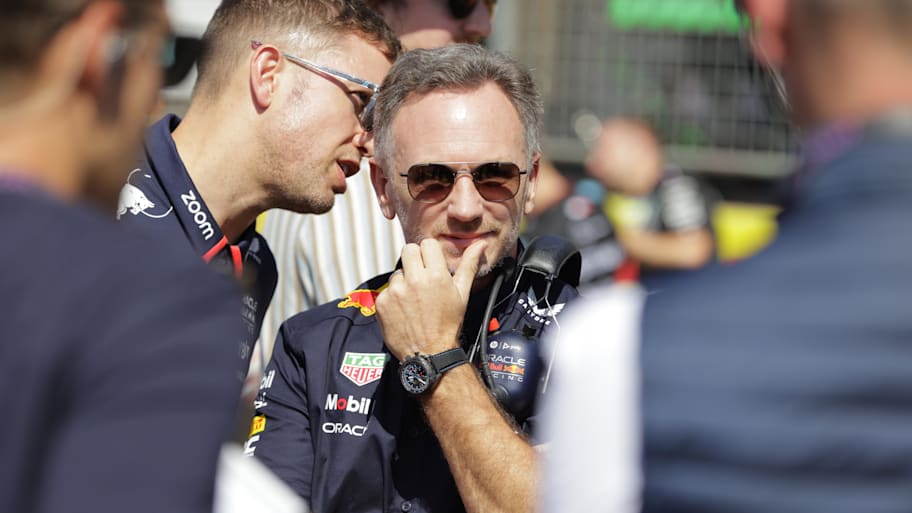After a challenging first half of the 2025 Formula One season, Red Bull Racing opted to make a move that signals a significant change in direction for the team, but one that didn’t involve four-time reigning champion Max Verstappen.
Instead, Christian Horner, who has served as team principal since the outfit’s inception in 2005, will depart the team effective immediately.
The news comes abruptly following the British Grand Prix, in which Verstappen finished a disappointing fifth after starting on pole position and teammate Yuki Tsunoda ended in 15th, last among drivers left on track at the end of the race. Red Bull remains a distant fourth in the constructors’ championship standings, a position the team hasn’t finished a season in since 2015.
Racing Bulls team principal Laurent Mekies will make the leap up to replace Horner as CEO and team principal. Alan Permane, previously the sporting director at Alpine and most recently Racing Bulls, will take over for Mekies.
“We would like to thank Christian Horner for his exceptional work over the last 20 years,” Oliver Mintzlaff, CEO of corporate projects and investments at Red Bull said in a statement. “With his tireless commitment, experience, expertise and innovative thinking, he has been instrumental in establishing Red Bull Racing as one of the most successful and attractive teams in Formula 1.
“Thank you for everything, Christian, and you will forever remain an important part of our team history.”
Horner leaves behind a legacy of stewarding Red Bull’s F1 team from its creation in 2005 to one of the most reliable competitors in the sport for the last two decades. During his 20 years at the helm, Red Bull won 124 of 405 races entered. Most importantly, Horner oversaw eight drivers’ titles—four by Verstappen and four by Sebastian Vettel—as well as six constructors’ championships, the most recent of which came in 2023.
But since that team title just over 18 months ago, the tides have turned at Red Bull. A drop in performance coupled by a meteoric rise for McLaren has seen the power at the top of F1 shift dramatically. All the while, Red Bull has struggled to get consistent performance out of whichever driver is operating alongside Verstappen, whether it be Sergio Pérez, Liam Lawson or Tsunoda. Verstappen still managed to hold off Lando Norris and win the 2024 drivers’ championship, but has struggled to keep pace this season, trailing championship leader and Norris’s McLaren teammate Oscar Piastri by 69 points at the midpoint of the campaign.
The cracks that have started to show in Red Bull’s armor have extended off the track over the last 18 months as well. It’s been no secret that a rift existed between Horner and figures around Verstappen, including his father Jos and highly influential team advisor Helmut Marko. A number of other key components of Red Bull’s success over the last decade have left the team as well, with renowned car designer Adrian Newey making way for Aston Martin and technical director Jonathan Wheatley becoming team principal at Sauber as the team ushers in a new era with Audi in 2026.
Horner’s job security appeared to be in jeopardy once before in 2024 when Red Bull announced an independent investigation into allegations of sexual misconduct against the 51-year-old team principal by a former Red Bull employee. Horner denied the allegations and kept his role, while the employee who lodged the complaint was later suspended.
Horner’s sudden departure comes at a consequential time for Red Bull, suggesting perhaps ownership is ready to close the book on the last two decades and look to the future. New regulations arrive in 2026, but much remains up in the air about what the team will look like next season—and who will be driving the two Red Bull cars.
In recent weeks, Mercedes team boss Toto Wolff has made explicitly clear that he is monitoring Verstappen’s status with the team and reaching out to the 27-year-old’s representatives about a potential move. Horner had denied any suggestion of Verstappen leaving, emphasizing that the four-time world champ is under contract until 2028. Verstappen largely skirted by any questions of the speculation, redirecting much of the conversation to this year’s struggles at Red Bull.
With Horner now following Newey and Wheatley out the door, most of the leadership that contributed to Red Bull’s run the last two decades is gone. That leaves Verstappen as perhaps the top powerbroker within the team, giving him what’s sure to be ample control over the moves made around him at the executive levels.
As for Horner, reports earlier this year suggested that Ferrari chairman John Elkann inquired about Horner moving over from Red Bull to take the reins. Horner categorically denied those rumors, saying he was 100% committed to Red Bull—only to be given the boot less than two months later.
The future for both Horner and Red Bull remains murky going forward. The partnership will go down as one of the most accomplished in F1 history, but also their split leaves behind a vacuum that several will be eager to fill as the next chapter begins for one of most dominant teams of the last two decades.
This article was originally published on www.si.com as Christian Horner’s Exit Signals a Full Reboot Is in Effect at Red Bull Racing.
